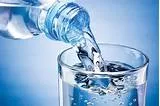
DRINKING TOO MUCH WATER COULD BE HARMFUL
Drinking enough water is essential, but gulping down more than your body needs might do more harm than good. Medical experts share why moderation matters, signs you’re overhydrating, and the smartest ways to stay properly hydrated.
Carrying a water bottle throughout the day has become common practice. Some people take frequent sips in the belief it will improve their health. For others, meeting a set daily target feels like an important part of their wellness routine.
But health experts say that while water is essential for the body, taking it in excess can be harmful.
Overhydration can upset the body’s salt balance, put strain on the kidneys and, in some cases, point to an underlying medical condition, medical experts warn. They emphasise the importance of drinking enough to stay hydrated without going beyond what the body requires.
How much is too much?
A consultant urologist at the Federal Medical Centre, Ebute-Metta, Lagos, Dr Kehinde Omotola Apata, says adults in hot climates should aim for between 3 to 3.5 litres daily, depending on activity levels.
Omotola warns that drinking far above the popular recommended amount litres, without medical advice could point to illness.
“A normal person will pass urine about six to eight times in 24 hours. It could be about four to six times during the day, and at night, once or twice. This is normal.
“Normal urine is close to clear but should have a natural amber colour. If urine is crystal clear, it can mean the person is drinking an excessive amount of water. This can happen in conditions like diabetes mellitus or diabetes insipidus, where a person constantly feels the need to drink water. This is not healthy because it shows an underlying problem,” he says.
Omotola adds that the right intake supports kidney health, while poor intake can increase the risk of kidney stones.
A study in the Korean Journal of Pediatrics has also shown that even healthy kidneys can only process between 800 and 1,000 millilitres of water in an hour. Drinking more than this within a short period can dilute the sodium in the blood and cause hyponatraemia, a serious condition that can lead to severe health complications.
In a related finding, a report in the Clinical Journal of Sport Medicine identifies excessive water consumption as the leading cause of exercise-associated hyponatraemia. The researchers advise that people let thirst guide their fluid intake, noting that this simple habit can help prevent overhydration and protect overall health.
Overhydration can be life-threatening
Public health professional Dr Olaide Balogun describes overhydration, known as hyponatremia, as a potentially life-threatening condition.
“With the growing trend of encouraging people to drink large amounts of water daily, it is crucial to provide balanced guidance,” she says.
Not everyone needs the same amount
Internal medicine physician Olusina Ajidahun says the popular advice to drink eight glasses of water daily is not suitable for everyone. He notes that the actual amount varies depending on the size of the cup and advise§ s that people should still aim for the popularly recommended amount (in litres), adjusting it to suit their needs.
“Someone who sits in an office with air conditioning will not need the same amount of water as a labourer working under the sun. You should drink water when you feel thirsty. That is the best guide,” he explains.
He adds that people with heart or kidney conditions should follow their doctor’s instructions on daily water intake.
Food can also hydrate
Clinical nutritionist and digital health creator Fiyinfoluwa Odukoya points out that food also adds to the body’s water supply.
“Foods like watermelon, oranges, ogbono soup and okra are full of water. If you are eating water-rich foods regularly, your body may not require as much plain water to stay hydrated.
“For example, someone who eats fruits in the morning, has soup at lunch, and drinks a smoothie later in the day already meets part of their fluid needs,” he says.
Five signs you may be drinking too much water
Urinating more than eight times a day
Constantly feeling bloated or full
Swelling in the hands or feet
Headaches or confusion
Urine that is consistently colourless
Healthy hydration tips
Drink water when you feel thirsty
Include water-rich foods such as watermelon, cucumber, oranges, pawpaw, strawberries, grapefruit, okra, and soups in your diet
Adjust your water intake based on weather and physical activity levels
Follow medical advice strictly if you have heart, kidney, or hormone-related health conditions
 Premium News
Premium News